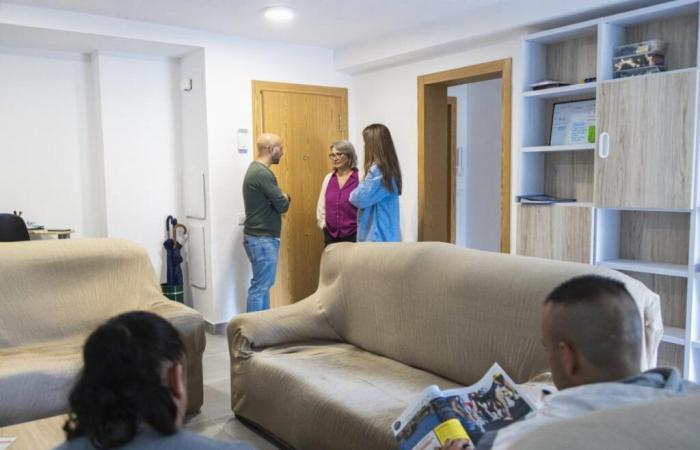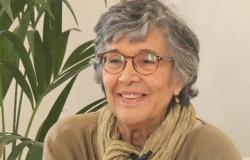Forty -five people who did not have a home where living have become the first users of the housing block that has … Habilitated Cáritas Diocesan of Mérida-Badajoz to serve people and families seeking social reintegration.
People who try to overcome an addiction, men and women who have been expelled from the homes where they resided or single -parent families who have suffered some kind of violence have become the first beneficiaries of a project that is carried out in a building transferred to Cáritas by the Board of Extremadura and that has the support of the City of Badajoz.
The General Vicar of the Archdiocese of Mérida-Badajoz, Francisco Maya, explains that the novelty of this project is that “uninstitutionalizes” the attention to the homeless people that until now was offered in the brother center of Huerta Rosales, now turned into an emergency resource for homeless people who have not yet initiated a reintegration process.
The center that worked on Bravo Murillo Street has been sold and its users have been taken to the brother center
The block in which the new service is provided is located on Ventura Reyes Prosper Street in Saavedra’s Lucky neighborhood, in the Civil Guard Housing Building that was partially occupied and that in recent dates has rehabilitated the Ministry of Infrastructure, Transportation and Housing of the Board.
One of the portals of that building is made up of social housing that were delivered several weeks ago to families with few resources that needed a home. Another portal is the one that Caritas occupies, in which two floors guarded with 6 seats each, 10 supervised floors, 5 long -stay homes for families and 2 emergency homes have been enabled.
Swinding homes are designed for people who are overcoming an addiction, which is why they are accompanied 24 hours a day by Caritas professionals. “Each user has an individual room, something that was not possible in the brother center,” says Elisabeth Ballesteros, director of the Caritas Housing Program.
Different is the operation of supervised homes, whose users are also supported by the professionals of this program but there is no permanent accompaniment. In this case, the beneficiaries are people with limited resources who have lost the house in which they reside and follow a program that seeks to reinsert them laborly and socially so that they can live again in an autonomous way.
Finally, there are floors dedicated to single -parent families in which both parents and minors are worked, to which support of all kinds is offered, as explained by a Moroccan woman who has settled with her two daughters after being victims of an aggression and running out of financial resources.
The program director stressed that this new block responds to a group, that of the family with children, which so far did not find an adequate response in the Cáritas centers. In fact, the five homes for families have already been occupied by several women with children and by a father who has settled with his son.
After two months of operation, the floors have 45 users and have 21 other places to respond to people who specify this resource in which Cáritas has invested 170,000 euros.
This NGO of the Church also keeps the Brother Center in service, now becoming a home with a minimum open requirement to people who need a place to sleep and proclaim but who refuse to start the detoxification and reintegration process offered by Cáritas.
As for the center that until now worked on Bravo Murillo Street, Cáritas has sold the building in recent dates, so it has already stopped working.
The intention of Cáritas is to launch in Mérida a service similar to the one provided in the luck of Saavedra, which is why he has initiated contacts with public institutions.






